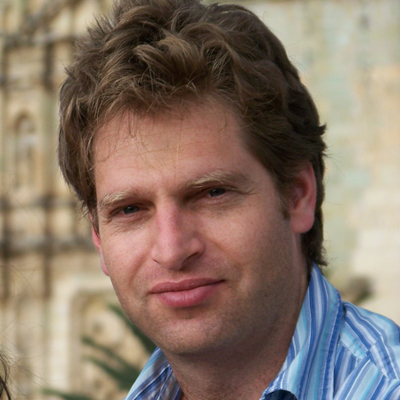Developing behavioral paradigms for self control rooted in human neuroscience
How do people control inappropriate actions, thoughts, motivations and urges? Such self-control can be achieved by many different strategies including changing one's environment, thinking about things differently, redirecting one's attention, and, as a last recourse, stopping the action, and perhaps the cognition or motivation from being expressed. Dr. Adam Aron of the University of California, San Diego, has focused on the last element in this self control chain - the stopping process. His research develops behavioral self-control paradigms in the lab that are also amenable to modern neuroscience tools (such brain recording and brain stimulation methods). He has taken a unique research approach for a cognitive neuroscientist of bringing diverse tools to bear on the focused problem of stopping action. This has allowed him to identify a core brain circuit in humans for stopping inappropriate action. This is likely to have greater generality for the control of thoughts, motivations and urges. Knowledge from this research program has already been applied to investigate a number of impulse control disorders such as ADHD, Tourette's syndrome and dopamine-treated Parkinson's disease.
His groundbreaking research was recognized by a recent American Psychological Association award nomination (http://www.apa.org/science/about/psa/2013/05/distinguished-award.aspx) in which the APA recognized his research as an "outstanding example of how neuroscientific methods can provide insights into complex psychological processes." His unique approach, focusing specifically on how people stop their responses, allows him to narrow in on specific processes. Moreover, his research for the last ten years has provided consistent results in terms of pointing towards specific brain regions, which is rare in human self-control research. Therefore, Dr. Aron's unique perspective will allow applications for his research to cut across a variety of behavioral studies.
Dr. Aron's research includes:
-
Investigating Action Stopping: Dr. Aron's research program has investigated action stopping in detail. His ten years of research has identified a core brain circuit in humans that is responsible for action stopping behaviors.
-
Extending Research: Dr. Aron's current projects aim to radically extend his research program by asking whether this same stopping circuit also underlies the control of thoughts, motivations, and urges. Testing these ideas involves developing new behavioral paradigms that can be run on volunteers in the laboratory, and using methods that can measure the stopping circuit of the human brain (such as functional MRI, EEG and electrocorticography recordings in patients), as well as stimulation methods that can prove that the stopping circuit is causally important for diverse aspects of human self control well beyond merely stopping action. Dr. Aron and his team have started this work and estimate significant progress within six years.
Future Applications: Dr. Aron expects that the identification of core neural circuits in humans for behavioral self control will usher in research to train/alter such circuits in people with impulse control disorders. This will involve cognitive training, pharmacological and brain stimulation approaches.
Bio
Dr. Adam Aron was raised in Southern Africa (Swaziland) and did his undergraduate studies at the University of Cape Town in Biochemistry and Philosophy. Dr. Aron then embarked on extended travels, mainly in Latin America. During this period, he was especially interested in current affairs and considered a career in journalism. However, on landing in the United Kingdom, he decided to pursue his interests in science and the mind and he entered a Ph.D. program at Cambridge University in 1999. He followed up with a postdoc at the University of California, Los Angeles from 2003, and then joined UCSD as faculty in late 2006. As a child, he always wanted to "get to the bottom of things," yet his interests were more in the realm of human affairs than in the physical world. Cognitive neuroscience provides a compromise as a way to try to understand the human mind in terms of underlying biological mechanisms.
Website: www.aronlab.org
In the News
American Psychological Association


